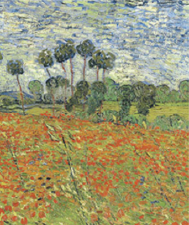PBIO 1140 Foundations of Plant Biology
Ohio Transfer Natural Sciences & OHIO BRICKS Arch: Natural World course

Raven Biology of Plants, Eighth Edition 2013
Ray F. Evert; Susan E. Eichhorn
Introduces the concepts of plant physiology and cellular and molecular biology that are the foundation of all biological processes. Topics include DNA structure and function leading to genetics and evolution, theories of the origins of life leading to cell structure and function, and bioenergetics. The lab provides supplemental information and hands on activities to reinforce the lecture topics.
What is biotechnology? This course includes information about research findings and their applications to the field, the marketplace and daily life. The course will cover the basic biological principles behind biotechnology from brewing to genetically modified organisms (GMO). Learn about what happens in the research lab and how that translates to daily life. This course will introduce students not only to the science but also to the public debate surrounding these issues.
This laboratory course is designed to provide graduate students working on molecular biology and upper division undergraduate majors with hands-on experience in genomics techniques, including essential bioinformatics, genome and transcriptome analyses, DNA isolation, cloning and sequencing, protein extraction and interaction assays, immnoblotting, RNA extraction and expression analyses.

Raven Biology of Plants, Eighth Edition 2013
Ray F. Evert; Susan E. Eichhorn
.png)
Introduction to Biotechnology, Fourth Edition 2018
William J. Thieman; Michael A. Palladino
